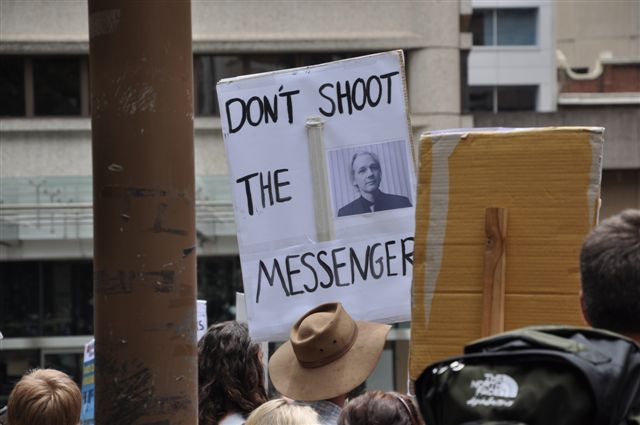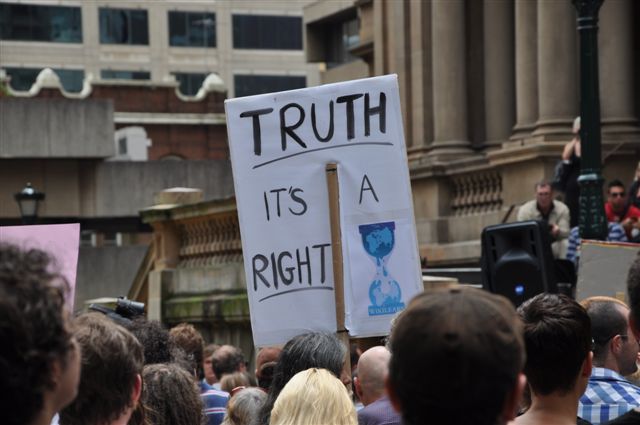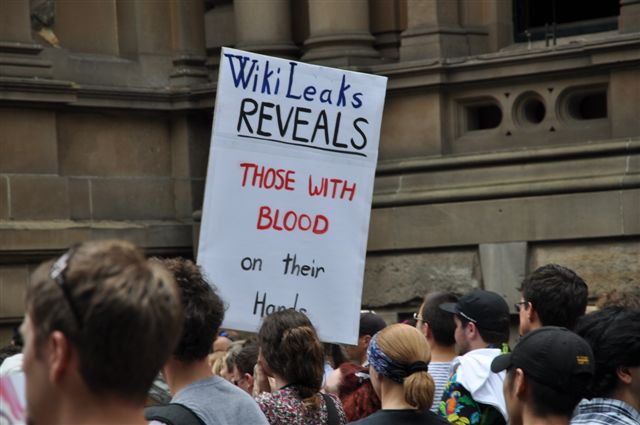The end of any period is the beginning of another. Transitional points like the end of a year are great times to take a step back and reflect on the year and it’s place in your life story. How does the past year fit into the narrative of your life? What direction are your decisions taking you? Are you living out a drama, a comedy, a tragedy or an adventure? Are you happy with this genre?
Times like this are a good time to ask: am I happy? And if the answer is no, to ask: what can I do to change this? Life is short, very short, and I don’t believe the gift of life should be wasted.
Learning about stories in literature we can identify the following elements, each which we have the agency to change:
- Events – am I happy with the events and sequence of my narrative?
- Time – where do I prioritise the time allotted to various elements?
- Action – what decisions are coming up, what actions am I going to take with other characters?
- Location – is the setting my life is taking place where I want to be?
- Relationships – am I happy with the relations between actors, events, locations, time and other (symbolic, allusive etc)?
- Point of view – what way to I chose to frame my experiences of the above elements? [1]
So am I happy? In general, yes, but there are many things I wish to change. I wish to add more adventure and comedy into my life, and leave at least some of the elements of drama and tragedy behind. I wish to take more time finishing the things I start. I wish to make time for more yoga, swimming and running, and to spend more time with fewer characters – remembering it’s all about quality not quantity.
What can you expect from this blog in 2011? As this blog follows my life and research, I can imagine the types of entries you can expect next year will be engaging in questions like:
- What role do stories play in my life?
- How do the stories in my mind relate to the stories in the reality I experience? What is the relationship between “me”, my “reality” and “others” and our collective “Reality”?
- How does the society I live within impact who I am, what I value, and how I live my life?
- How does language and framing create categories and realities? Can we rely on these? Can we create new ones?
- What is the trajectory of my life-story? What is the trajectory of the story-of-humanity? How can we ensure this is a trajectory we desire?
The above questions will be explored from a range of literature on “Narratology” (the study of narratives), “Social Construction of Reality” (sociology), “Phenomenology” (philosophy of the mind), “Process Philosophy” (the idea that nothing is static, everything including one’s self is a dynamic process), “Panentheism” (the idea that we are inside a macrocosm we call “God”), philosophical reflections on Health and Happiness, and “Ecological Thinking” (that looks at the unity of self and the world we are a part of). Hopefully I’ll manage to combine these with life experience, photography, travel, and humour – variety is the spice of life.
How has this blog developed since it’s birth in September 2009? Below is a list of titles – click a heading to read the full entry.
September 2009
My first blog
At the moment so much is happening every day that I feel like three days fit into one. This morning I finish uploading the basics of this website and “took the next step” – announcing it on facebook. Facebook is interesting – with the click … Read More →
Early days
Some of my stuff from a few years back. Most of these are from Paris and London. I can’t hardly remember the feeling of having a shaved head… it was liberating, that’s for sure.
Alchemy
Exhibiting at Manning Artspace, Sydney University – July 2009-December 2009. The title of the series, Alchemy, was inspired by Paolo Cuelo’s The Alchemist; a four-part series taken over a three-month journey around South America. The first shot of the series was the one in Huacachina … Read More →
Sud Americana Landscapes
Galapagos is not the only awe-inspiring place in Latin America. Here are some of the most mind-blowing sights that with my camera I did it’s best to capture… Uyuni Salt-Lakes, Bolivia Lake Titicaca, Bolivia El Calefate, Patagonia Iguazu Falls Salvador, Brasil Rio de Janeiro, Brasil
“A Little Inspiration for a Big Idea”
The Art Tree Exhibition – my series is called “A Little Inspiration for a Big Idea”… The little inspiration The Theory of Evolution is a HUGE idea. But like all ideas, it starts with one thing: a little inspiration. Something happens to you: a feeling, … Read More →
People and Portraits
South Americans are different. There’s some powerful energy inside of them unlike any other people. The eyes of these children say it all.
Love Is
“Love Is” by Juliet Bennett Love is lost in eye’s oceans butterflies a breathe unknowns potentials innocent bliss Love is innate desire a constant distraction unexplainable energy a potent seduction soft lip’s tender kiss Love is beyond your control the wish of God ecstasy and … Read More →
Creativism – a philosophy for life
Creativism… the beginnings of a new philosophy, with positive implications on social, political and economic theories. Ok – with that amazing very creative photograph that won “Portrait of the Year 2009” by Sydney photographer Pippin Schembri – I now divert your attention to something close … Read More →
Lindt chocolate is NOT slave chocolate!
I emailed Lindt a year ago and pretty much got a ‘no comment’ response but I emailed them again today and got a response already and guess what?! They DO NOT GET THEIR COCOA BEANS FROM THE IVORY COAST!!!!!!!!!!!!!!!! They do not use slave labour!!! … Read More →
What is Beauty?
“Beauty is in the eyes of the beholder” In Japan, people would look at me and gasp “Kirre!” “SagoiI!” “Chiisai!” (translation: “Beautiful! Wow! Small!”) as they motioned a small circle with their hands and touched the skin on their face. This was followed by broken … Read More →
My inspirations
“Good novels are written by people who are not frightened.” George Orwell. Some of the most inspiring people in my life: Leigh Stark Blogger, photographer & the creator of this website. Thank you so much! www.leighlo.com & www.sackboyliveshere.com Chelsea Haywood Author and my wonderful Canadian … Read More →
A guy’s point of view
Sorry about the photo. A bit rude. Rachel took it not me (I think) – one of the millions of photos we took of graffiti art in South America. This one was in Bariloche Argentina. I thought it was appropriate. I never really read FWD’d … Read More →
Meaning of life
Something sure to come up a lot on this blog is the question of meaning – why the f**k are we here on this planet??? It is something I contemplate regularly. The human condition is a strange one – born no different from other animals … Read More →
Shopping malls & traffic jams
Two entries in one day! Don’t know what’s gotten into me but I’ll probably be scaring off any readers if I have any… it won’t happen too often, I promise. I just got home from Warringah Mall. I was standing in line waiting to return … Read More →
God and fundamentalisms
This may sound strange but I LOVE our universe. I love that we are conscious of our selves, that we understand so much about our location in space and time, and I love that there is so much we don’t know – the mystery and … Read More →
PEACE: HOW DO WE FIND IT?
As I go through my studies, learning about the world and the peace and conflict that exists on different levels, and even as travel through my own life’s little challenges, I find I coming back to one question: HOW CAN I FIND PEACE? Is peace … Read More →
Empowering women & the role of men
Empowering women has been said to be the “silver bullet” to ending poverty. Studies have shown that an increase in the income of women directly correlates with increases in the education and nutrition of children. These children will lead longer and more fulfilling lives, and … Read More →
Temporality & my chocolate belly
Ok I know that’s a shocking photo (it’s from a family celebration for my sister’s engagement last night which makes it even worse)… but I think it’s worth a laugh. And I tell you what, the chocolate semi fredo I’m licking is the very best … Read More →
October 2009
The journey of an inquisitive Christian
This is a 70-page book tracing the questions and answers encountered in my journey from a conforming, narrow-minded fundamentalist Christian into a passionate free-thinker – without losing my spirituality, my connection with “God” (albeit with a new understanding of what this word means, namely a personification of the macrocosm we are a part of), and reifying a passion for truth, people and our planet… Read More →
An Ethical Dilemma: Childhood Conversion in Christian Fundamentalism
My MA Dissertation completed in June 2009. I got a HD… pretty ridiculously stoked!!! Click here to download my PDF Abstract The rise of religious fundamentalisms and the implications of the dividing polarity are a topic of increasing attention in scholarly literature. The induction of … Read More →
My Thunderbolt Moment
Written as an appendix to my masters thesis “An Ethical Dilemma: Childhood Conversion in Christian Fundamentalism” in June 2009. My ‘Thunderbolt’ Moment This brief account of my personal case is provided to make known the perspective from which this paper was written, to demonstrate how … Read More →
Things aren’t always what they seem
Back at bikram yoga yesterday I looked back into the big horrible mirrors and smiled – my tummy looked thin and flat. This was only my third class and I was already getting great results. Then I stepped to the left and the image changed … Read More →
“I have an excellent idea – let’s change the subject!”
My blog has gotten a quite intensely serious. Religion, philosophy and peace talk. Interesting but reflective of the subjects going on in my mind, it has become a little draining. Or maybe today I’m just a little tired. Either way I do believe I should … Read More →
The Animal Question: Darwin’s Bastards
I’m working on a concept for an upcoming exhibition entitled “Darwin’s Bastards” that will be held at Verge Galleries on City Road in November. I’m not yet sure yet my photos will be accepted but it has been an interesting exercise to contemplate how Darwin’s … Read More →
I’m late
Time is my most valued asset. Time is money. And money (in its intended design) is a store of time. Money effectively allows us to trade our time for the time of others. Numbers in bank accounts provide me no pleasure. It seems to provide … Read More →
Death, life-commitments & a horse’s penis
It all began on Friday morning when my Opa said to me “I’m not well. I’m feeling dizzy.” I held his hand. He was freezing. I called the Doctor, and then the ambulance. I put a blanket on him, the heater next to him and … Read More →
At the precipice…
“Only on the brink of disaster do people find the will to change.” “Our sun was dying, we had to evolve.” “Nothing ever truly dies. Everything simply transforms.” (I found these quotes in my diary. I think they are from The Day the Earth Stood … Read More →
Live life for money
Live life for money Accumulate many things Get into debt Rejoice what this brings: … More work, less time Fear material loss Forget impermanence Decay of time is boss … What’s left is a story A story of Capital Of slavery to a system Of … Read More →
Depression
Sometimes life just sucks. For no reason in particular. And for every reason in particular. You know that feeling? Or am I the only one… The funny thing is that nothing has really changed. I’m still living with my Opa, I’m still at uni, I’m … Read More →
Circles in the Land of Angles
THE CRAB – IN ENGLAND I love learning where words come from. England, according to wikipedia, comes from the Old English Englaland, the “Land of the Angles”, the Angles being a German Tribes from the Middle ages. Learn something new every day – I always … Read More →
November 2009
Internal battles of head and heart
Sometimes the battles inside your body can provide many insights on the battles of the world. The last couple of weeks have been a struggle – a battle between my head and heart over what the two of them inside my body are going to … Read More →
Helping “developing” nations
Geez I have been bad at keeping my blog. I’ve had a lot on I suppose… what with uni essays, exams and my Opa slowly dying before my eyes … So yeah, haven’t really been so inspired to write just for the pleasure of it. … Read More →
St Tropez with Jason Mraz
Hmmmm….. I feel like a capitalist. How this reconciles with my hate for what capitalism does to the world I’m not quite sure. Yachting on the Cote de Azur was pretty frickin cool…
Sisters and puppies
Just a cute little post to encourage a laugh and smile on a Friday afternoon. The sleeping puppy above (small black mound of fur) is Bella, and that’s my youngest sister in 2004 – the only photo a sleeping dog I can find atm to … Read More →
The memoirs of Willem Van Leeuwen… and the magic of life.
Yesterday at 5pm my Opa (that’s dutch for grandfather), passed away at the ripe old age of 93. Born 20th February 1916 in Amsterdam, The Netherlands, Willem Frederik Van Leeuwen lived a long and inspiring life. He was a wonderful, caring father and grand-father. Me … Read More →
A novel in the making…
On the 19th of November last year I left Australia on the most exciting adventure of my life thus far – a crazy fast tracked expedition around South America. A desire had been growing ever since I’d noticed the incredible energy of my Brazilian friends … Read More →
December 2009
Indecisive Spontaneity and Noncommittal Commitment
“Ok Andressa, how much to fly to Brazil for carnaval? Via New York? How about via Mexico? Ok, how about I just go to Mexico and make my own way there? … How about Africa? Tasmania? Uluru?” In the span of one week I have … Read More →
Potentialism: a philosophy for life
Potentialism: a philosophy for life Discovering your ultimate creative potential: you as your individual conscious, you as your society and you as the universe – playing your role in the creation of a future reality you desire. Syncretic paradigms: 1. The purpose of life is … Read More →
Burbs to buzz
Arrrhhhh moving house ain’t easy. I am writing now from a chair that’s too high for my desk surrounded by piles of clothes, computer gear, papers, and empty boxes; frustrated that the internet connection I was waiting to be delivered was (after many-a phone calls) … Read More →
Dilemmas of the Mercury Retrograde
“Since Mercury rules communication, it’s said that everything goes haywire in that area — emails get deleted or bounced back, mail is returned, calls go out into the ethers, etc.” (www.astrology.about.com) So put it into your diary: December 26th to January 15th, 2010. In 2010 … Read More →
Sex and the city
Sydney is my New York. And I am Carrie Bradshaw, sitting at my computer with an apple (or cachaca & pineapple as it is), pondering and writing about life, love and the city that is my new home. I’ve been here just one week and … Read More →
De ja vu? Hair
“What do you think?” She asked me. “Ah… It’s ok.” I said, frowning at my reflection. “I’m not quite sure how you got that,” I looked to the mirror, “from this” observing the photo in my hands. The cut is not so bad. Nor … Read More →
Consumerised misinterpreted pagan traditions
Surrounded by the mayhem of people spending money in desperation to tick the boxes and announce that those glorious words: “I have finished all my Christmas shopping”, when something dawned on me. It is not the nicest thing to day one day before the holiday … Read More →
Chapter 15: Old Peak (Machu Picchu)
This was my Christmas Eve and Christmas Day last year. It was absolutely positively fantastically magic. I highly recommend!!!!! MERRY CHRISTMAS EVERYONE xoxoxoxoxoxoxox
Keeping the tradition
No thanks to my preluding complaints I ended up having a great Christmas. I still don’t think gifts are a necessary part but who am I to complain about receiving money, new yoga mat, vacuum cleaner and other very useful and yummy and generous gifts? … Read More →
January 2010
Green porn
I can’t remember who or when someone told me to look this up but today on this rainy summer’s day besides enjoying calm pitter patter,working on my book, and sending a few happy new year messages, I have been looking up green porn. Soooo funny! … Read More →
The Christmas Pudge… and a Love of Beer
So I borrowed my mum’s scales to check the Christmas damage. 64 kilos. What the f??? I don’t step on scales so often, judging by measurement more than kilos. But, well, “in the day” I weighed 55kgs. And on average I think I’m around 58-60kgs. … Read More →
SHANTARAM
I’m revisiting one of my favourite books, that I actually never got to finish (it is 933 pages long), and typing up some of my favourite quotes (I do that with my favourite books) and I thought I’d share some with you as I type … Read More →
The Religion Debate
1. “Is there or isn’t there a God?” 2. “Is my god the True God or is yours?” These debates are entirely based on one’s definition of the word “God.” So, shouldn’t we be a little more focused on the question as to what is … Read More →
Loving the city but missing the burbs…
One minute I’m out, the next I’m at home. No more driving hours to see my friends. Now I just walk. No more “designated driver” (hence water above) – no doubt I love living in the city. But… since the “moving in” hype along with … Read More →
Walking through Rainforest
Sometimes I walk with music playing in my ears, sometimes I walk reading a book or editing parts of my own writings, and sometimes I walk with no phone, no music, no book – nothing. The later is my favourite – that’s where I get … Read More →
Alcoholic flowers
How would it feel to have consciousness without a brain? Check out these flowers! My cousins gave them to me sometime between Christmas and New Year when they popped by to check out my new home. I didn’t have a large vase so we hunted … Read More →
We ALL live off a Narrative Of Peace
Ok so I’m laying in the water enjoying an early morning swim at a nearby harbour-pool when all these thoughts stream into my mind. A sign that my mind has had enough vacation? I’m not sure.. Narratives of Peace is a topic I’m looking at … Read More →
When you lose your peace narrative….
Last night during some deep anthropological discussions, the subject of depression came up. “Depression is the incongruence between creations of your mind and soul, and the creations you are manifesting in the material world.” Lauren explained. “A depressed person feels as if their mind is … Read More →
Living too long and popping too many babies
Today I’m doing a little report for my Dad’s business which is in the Aged Care sector. And I tell you what – I’m learning some VERY interesting (and frightening) facts along the way… “Around two million Australians are aged 70 years or older. That’s … Read More →
A flea on a dog’s back
Sometimes I feel like a flea on a dog’s back. The great-great-great grand daughter of a family who decided to no longer jump from dog to dog, but instead thought it a good idea to settle down on one animal forever. My ancestor-fleas thought themselves so … Read More →
Over it… almost.
It has been a VERY long weekend. From blind dates to lost dogs, movies with sisters, drinks with friends, pub crawls, drunken falls, sprained ankles, frustrating lockouts, more drinks, a Girltalk concert, Oxford St clubs, waterskiing on the harbour, Australia Day bbqs, more beer, and … Read More →
February 2010
On the fifth day of detox….
It is interesting to see you operate with no drugs in your system. No using coffee and chocolate to wake me up and stimulate my mind. No using alcohol to relax and escape. Following a big night to farewell to the month of binges, the … Read More →
I shot a gun. And I liked it.
The first shot blows me away. I focus my eyes, level the gun and POW! My arms jolt up. The bullet hits the paper target. The second shot. Ok. I’m getting used to this. No idea where the bullet landed. The third shot. Bulls eye! … Read More →
On the tenth day of detox
So, all was going well, the swelling on my ankle was very slowly starting to disappear when… OUCH!!! I DID AGAIN… On my first morning walk in two weeks, as I enter Trumper Park, it goes on me. I fall to the ground and hit … Read More →
“There’s no such thing as balance.”
The fourteenth day = detox half-way mark……. It’s after midnight. I’m a little tipsy. What happened to my detox? As I’ve mentioned in my last post, I “fell off the horse” by no fault of my own – the 3rd ankle sprain in three weeks … Read More →
Call Me By My True Names
This is a poem by Thich Nhat Hanh taken from: Peace is Every Step: The Path of Mindfulness in Everyday Life. Can we recognise ourselves in each other? Please call Me By My True Names Do not say that I’ll depart tomorrow because even today I … Read More →
We are our own enemy
There is no such thing as enemies. They don’t exist UNLESS YOU CREATE THEM. Australia sends “modern warrior’s”, off to “wage war against new and real threats” in the Middle East. Their mission is to: “kill the enemy,” “attack rogue states,” “stop terrorists,” and “protect … Read More →
The Cyberspace Witchhunts
Lateline is an abc news show that I only ever watched with my Opa. We watched it most nights and from there we would talk about politics and the depressing state the world is heading toward. Before I moved in with Opa, I didn’t know … Read More →
Step away from the book…
My sprained ankle had it’s benefits – LOTS of time sitting on my arse. And so, one week ago, I finished my first draft of my first novel. A first draft is a big achievement I suppose. The only problem is that it’s far too … Read More →
Resolution Theory
So I (finally) finished reading Shantaram!!! It is a very long book, but well worth the time. My favourite parts, besides Gregory David Robert’s incredible use of adjectives, is the philosophy of life that Khader Bhai, the Mafia don, shares with Lin. Khader Bhai calls … Read More →
A big thumbs down.
So the other day I’m in a bar and I run into a student from a Pilates class I used to teach. We have a nice catchup and he asks for my number. Without much thought I give it to him – not cause I … Read More →
Seeds, spirals and simplicity
Reading some diaries and writings of my past it is interesting to see how my consciousness today is embedded in them. I can trace most of my ideas in an almost spiral movement back through time. I can see the exact points in time where … Read More →
March 2010
Finding treasure
Have you read The Alchemist – by Paulo Coelho? The first time I picked it up it didn’t grab me and I soon put it down. But the second time I picked it up, the simplistic beauty of the allegorical novel suddenly clicked. I’m going … Read More →
True Blood
Ok, so you’ve seen True Blood right? If not you should… From wikipedia (I’m too lazy to write today): True Blood is based on The Southern Vampire Mysteries (informally known as The Sookie Stackhouse Novels / Chronicles and retronymed the True Blood Series) is a … Read More →
A different lens
What lens do you use when you look at the world? Is it a 35mm – where everything is pretty much a “normal” proportion? Is it a micro-lens, magnifying the small details? Or is it a wide-angle lens, taking in the big picture? Just as … Read More →
A time for everything
Time is the most valuable asset we have. We count as weeks and years go by, as we get older and our borrowed energy starts to dwindle. There’s not enough time in our day. Not enough time in our weeks. Not enough time in our … Read More →
Narrative of the TXT
Do you ever send a text later wonder if the receiver interpreted as you intended? Do you ever receive a text and wonder what the sender meant? On my walk this morning (my ankle is finally better!!!) I found my mind applying narratological concepts to … Read More →
Richard Dawkins and WHAT is God?
Interesting interview on SBS with Richard Dawkins last night. Stream it at this address: http://www.sbs.com.au/dateline/story/watch/id/600352/n/Interview-with-Richard-Dawkins I left this comment and thought I’d share it with you: There is a God VS there is no God.. haven’t we forgotten to define WHAT is it we refer … Read More →
Saving the Planet with a Sense of Humour
We are a funny species. And immensely arrogant… George Carlin on saving the planet: … BUT our arrogant species IS causing damage to our habitat. If we don’t want to go extinct it is in our best interest to stop destroying it. The good news … Read More →
Word of the day: Quixotic
Quixotic means: 1. extravagantly chivalrous or romantic; visionary, impractical, or impracticable. 2. impulsive and often rashly unpredictable. 3. (sometimes initial capital letter) resembling or befitting Don Quixote. 4. caught up in the romance of noble deeds and the pursuit of unreachable goals; idealistic without regard … Read More →
A Postmodern Grand-Narrative
Come with me on a journey through time and space… the mighty booooooshhhh! (If you haven’t seen The Mighty Boosh, do yourself a favour – watch it!) Searching for a Postmodern Grand-narrative…. I deferred this semester’s uni in hope of getting a scholarship to support … Read More →
A fear of death. A fear of life.
Juan, my new friend on Galapagos islands saw the look of horror on my face when I saw the iguana carcass. “It’s part of life,” he shrugged. As time on the islands passed I would see many more examples of the cycle of life and … Read More →
How Religion Spread
You MUST check out this awesome animated map of history. It shows when each religion starts and how each one spreads across the globe – all in less than two minutes. http://www.mapsofwar.com/images/Religion.swf It’s been a busy week so I will start the Big History series, … Read More →
Big History Blog Series: Introduction – Our Story
I wish to share with you a story: The Story of the Universe. My Story. Your Story. A True Story – well as true as true can be. Our Story has gone through many filters: of limited human knowledge developed through our limited human senses, … Read More →
Big History Blog Series: Chapter 1 – The Big Bang
Once upon a time, in the land of Quantum Nothingness, there was a BIG BANG and an infinitesimally small something started to expand, possibly faster than the speed of light. For some unknown but much talked about reason, matter in the form of quarks (the … Read More →
How to create a world war
Among my Internet surfing I came across a “creationist” website – the belief that the world is around 6000 years old – a figure derived from tracing back the genealogy in the bible from Jesus to Adam, and the seven-day creation. This belief is growing … Read More →
To do, or not to do? Avoiding regret.
I’ve come up with a new little set of questions I ask myself when making a decision. 1. Will I regret doing it? If I answer “yes”, I don’t do it. (Reason being, if I am pretty sure I’m going to regret something I think it … Read More →
Where are we, where are we going, and how?
‘I want to be thoroughly used up when I die, for the harder I work the more I live. I rejoice in life for its own sake. Life is no “brief candle” for me. It is a sort of splendid torch which I have got … Read More →
April 2010
Tangled up in knots
Yesterday EVERYTHING seemed tangled up in knots. Even my washing. Ahhhhh! I screamed. I had been trying to write journal articles and my mind seemed to mix up the concepts and ideas. I had been trying to edit my book but it seemed muddled up … Read More →
Happy Ishtar!
Easter is celebrated at Spring equinox, a time that for thousands of years was a celebration of the goddess Ishtar resurrecting the Babylonian/Sumerian god Tammuz/Dumuzid – the god of food and vegetation. Ohhhh, it makes so much sense! The burgeoning of spring: a time of … Read More →
Oil, smoke and mirrors
Oil does more than run our cars. Oil runs our cities, oil produces our food, oil fuels our flights and hence industries of tourism, and oil powers the weapons of war. Oil = Power. And as demand increases, supply is peaking… hence the “war on … Read More →
City living and neighbours screaming
I didn’t sleep last night. My sisters were visiting and I doubt they did either. I love city living, but sometimes it takes it’s toll. “Dirty cat, dirty cat,” some chick sang at the top of her voice. CRASH! BANG!!! And a few minutes later … Read More →
Dirty Cat Returns…
Yesterday morning’s crazy events almost repeated themselves that night. The girl who sang dirty cat, was back. In a hat. No not really in a hat. I just added that. Okay…. moving on. So she was back, and drunk again. No screaming or glass shattering … Read More →
Big History Blog Series: Ch2 – Star Formation and Another Big Explosion
To recap, in our first chapter of this Big History Blog Series, we learned that the Big Bang theory is based on the observation that our universe is expanding and hence that it must have once been smaller. Winding back time we imagined the infinitesimally … Read More →
The world is a game of chess
“War is like a chess game – operated by a few key people, everyone else doing what they are told.” “In war, who is the real enemy? The real enemy is war itself.” War is “preserving democracy, not practicing it.” Crimson Tide I was talking … Read More →
Sex or chess? Peace, the world’s trump card
So yesterday I enjoyed a little rant about the game our governments, supported by the people’s consumer-driven values, are playing with military pawns, strategically placed towers, and other oil-powered weaponry. We established the difficulty in knowing what sources we can trust, but decided that either … Read More →
An Aristocratic Future
‘If a single phrase could encapsulate society in 2015 it would be “more difference and starker differences”. Those differences will be between individuals and households: those with high skill levels and those without; those with property-related inherited wealth and those without; those who are fit … Read More →
The Spirit of the Times (Zeitgeist)
The word “Zeitgeist” comes from the German word Zeit, which means time, and Geist, which means spirit. So basically Zeitgeist means the “spirit of the times” and according to wikipedia this means the “general cultural, intellectual, ethical, spiritual, and/or political climate within a nation or … Read More →
Free Documentaries: The Truth Is Free
Bored? Never! Check out this website: http://freedocumentaries.org/index.php In particular I recommend: Manufacturing Consent – Noam Chomsky … if you haven’t seen this one you better watch it NOW! The War on Democracy – The US manipulates politics of South America The Power of Nightmares – … Read More →
Small talk. How will we be remembered?
‘What do you think our generation will be remembered for?’ a friend said at dinner. ‘The generation who ruined the planet for everyone.’ I replied without a thought. ‘I was thinking more about what architecture style or something… but….’ Oops. Yep – I’m great at … Read More →
Happiness and relativity
Yesterday I had a bit of a rant about the money people earn and spend in the world I live in comparison to the money people earn and spend in the developing world. Here people work around 8-10 hours a day, 5-6 days a week … Read More →
Redefining the “good life”
There is plenty of evidence that ‘the work-dominated and materially encumbered affluence of today is not giving us enjoyable lives, and that switching to a more sustainable society in which we work and produce less would actually make us happier’: – the ‘stress, congestion, ill-health, … Read More →
Strange looking animals
So I’m still writing my book – the novel on South America – well, I’m editing it. It’s a tough. I like writing, but not a big fan of editing and filling in the gaps. Does anyone knows a good editor? Anyway, while searching for … Read More →
Buddha’s charter of free inquiry
From the Kalama Sutta: Do not accept anything on mere hearsay (ie oral history/ just because many people believe it) Do not accept anything by mere tradition (ie just because it has been handed down generation to generation) Do not accept anything on account of … Read More →
POTENTIALISM
“We got greedy in the 1980s, grungy in the ’90s and geeky in the noughties. This decade, we’re eager to explore our potential.” [1] On my flight home from Melbourne I read an article that excited me. It was called “Meet the Potentialists”. A movement … Read More →
The parable of Easter Island
When I was in South America, one place I missed was Easter Island. If you want to go here I believe flying LAN Chile is the way to go as they give you a free stop over if you’re flying from Australia. We flew Aerolinias … Read More →
May 2010
The evolution of “Man’s Best Friend”
I stole my sister’s schipperke Bella for two days of doggie companionship – it’s pretty clear why they say that a dog is a man’s best friend. Not only are dogs adorable and fluffy, they (especially Bella) give you cuddles and snuggles when you ask, … Read More →
Why did the goose cross the road?
Why do any of us cross roads??? To get to the other side of course… still it was quite a funny sight. Today I took Bella to Centennial Park. As we approached a large flock of swans and geese Bella instinctively led me away from … Read More →
India’s default detox
Next Thursday I am going to India and I have a feeling I will be making up for the failure of my February detox. My sister tells me coffee in India sucks, so that’s a start. I wonder if they have chocolate? … Suppose I’ll … Read More →
Which road are you on?
These are some roads I drive on all the time but have never seen from this perspective… So while I should be packing and practicing my presentation here I am testing out the blogging application on my iPhone (thanks Leigh for making this work!!!). This … Read More →
The first chapter – Culture Shock and Stage Fright
Don’t worry, I’m not writing another book (not planning on committing to that ginormous task again in a hurry…) but the first chapter of my 5 weeks in India/Nepal started out with 4 nights in Mumbai, or Bombay as people tend to still call it. … Read More →
Chapter 2 – One Country, Many Worlds
There seems to be a great reverence for Gandhi throughout India. His face features on every rupee note, and his philosophy and practice of non violence gained a mention in almost every Indian speaker’s presentation at the conference. “Truth is God”, said Gandhi, dedicating his … Read More →
Trusting one’s instincts
More than any other country I have visited, in India you have to trust your instincts. Look into someone’s eyes and you know. Even if people who should know assure you it is ok – that you can trust this taxi driver and that the … Read More →
Curing my incurable optimism
India is curing what my mentor used to call, my “incurable optimism.” I’m not it’s a good thing, it’s definitely a more depressing state of mind. But hey, the truth hurts. And I’d rather live and be aware of the truth, no matter how painful … Read More →
Accepting things, just as they are
“No seatbelt ma’am,” said the driver who picked me up at Coimbatore airport. This is one habit I just can’t shake. As we drove up through the mountains, toward my retreat, I turned on Deepak Chopra affirmations audio book. The first one seemed appropriate: to … Read More →
June 2010
And now, I relax
6am “knock knock” my revolting tasting medicine (of who knows what) arrives at my door… 630 yoga; 730 walk and feed monkeys; 830 breakfast (fruit and random-looking-but-delicious Indian vegetarian goop); 10am reflexology; 1030 continue reading “Holy Cow! An Indian Adventure” (awesome book btw); 1230pm massage (naked … Read More →
Disasters and Delhi
I say another little prayer from my prime position laying down in the back seat with my eyes closed. It is raining and the same crazy driver who overtook on blind corners on the cliff side on the way up was to drive me back down. The special requests for … Read More →
A not-so-golden Golden Triangle (Agra)
I have never felt so dirty and disgusted in my entire life. A thick layer of smog and filth covers my skin. My feet are black. My finger nails are blacker. It is definitely one of those all-I-want-is-a-shower-and-bed moments. But my disgust is far deeper … Read More →
A more-golden Golden Triangle (Jaipur)
If you read my last entry you will probably remember it was written in an exhausted and over-it state of mind. But, as we all know, for every down there is an up. You never know what is waiting for you around the next bend. … Read More →
A golden farewell to the Golden Triangle (Delhi)
Counting the days in Mumbai and the Golden Triangle I probably spent a total of one week in what most seasoned travelers would laugh at me for calling raw-India. It was raw enough for me. And I definitely didn’t shed a tear as I stepped … Read More →
From Bangkok to Bikes, Bollywood and Bongs (Kathmandu)
On the plane from Sydney to Bangkok, a some three weeks ago now, I met Bipeen – a Nepali who has been living in Australia the last couple of years who was on route to visit his family in Kathmandu. “I’ll pick you up at … Read More →
Hippies and happiness (Pokhara)
We arrived to eat dinner and sip cocktails with a perfect view of this beautiful lake. I had no idea what I was expecting when I left for Pokhara, but I wasn’t expecting the quiet little Queenstown-like town it is. Before long, with more new friends, … Read More →
Overnight Change: One day you’re here, the next…
One day a prime minister, the next you’re not. A captain thrown overboard by his crew. Why? Was he really so bad? Was he leading the ship in a direction they didn’t want to go? Was a pirate about to overtake his ship? Was he … Read More →
Coming to grips with the elephant in the room
I knew I would leave India with a new perspective of life – but the upturning of my worldview has happened in a far different way than I expected. I thought I would arrive home more passionate about social justice, more inspired to make a … Read More →
Good, bad and the thinking that makes it so
No animal was harmed and no blood was shed, in the making of this photo… looks can be deceiving. So can words. Reality itself can be deceiving. Distinguishing deception from truth begins with accepting it is there. There is a funny story behind this photo, … Read More →
July 2010
Capitalistic karma: reinterpreting reincarnation
Walking up in the mountains outside Kathmandu I contemplated the connection between the world’s inequalities today, the actions of one’s ancestors, and the idea of karma and reincarnation that I had been reading about in some books on the Eastern Religions. Be they the ancestors … Read More →
The eye of the storm and the calm that follows.
I knew my final peaceful week of yoga and relaxation in Pokhara was the calm before the storm, and boy I was right. The eye of the storm hit the day I arrived home with every day and night packed full-to-the-brim with hens parties, farewells, … Read More →
Envisioning the future of humanity-on-earth
While in a recent entry I concluded that I simply need to accept the world as it is, today I wonder, does this mean accepting the projectory of the world’s future? If we have the foresight to see that the present path we are on has … Read More →
IS LIFE MEANINGLESS?
“Meaningless! Meaningless!” says the Teacher. “Utterly meaningless! Everything is meaningless.” What does man gain from all his labor at which he toils under the sun? Generations come and generations go, but the earth remains forever. The sun rises and the sun sets, and hurries back … Read More →
MOMENTO MORI (remember that you will die) so CARPE DIUM (seize the day)!!!
Whoever we are, and whatever what we have accomplished in our life, we all eventually face the same fears: fears of being old, ill, of being a burden to our families, fears of going insanity, of losing liberty, losing dignity, of being neglected in our … Read More →
Can Buddha help us deal with the elephant?
I am starting to understand what Buddha meant when he said all life is suffering. No matter which financial situation you are born into, we always want more. It is very rare we reach a stage where we happily say “enough”. The more chocolate I … Read More →
Greed: the JOY of having more than you need… Taoism and more about that frickin elephant.
I used to think we could all be less greedy – that if we wanted less “stuff” we would be happier, and some of that wealth would be shared with the poor. Apparently this simple shift has the power to end world hunger – the … Read More →
Population Vs. luxury… QUALITY OR QUANTITY?
“On the technical side there is no limit to population,” said a scholar after talking about solving world hunger. “We just need more efficient systems, and for the rich to eat less.” This may be true, BUT the greater question (in my opinion) is: Do … Read More →
Human rights or a collective future? The problem with definitions.
If the pursuit of peace is an attempt to rid the world of violence, we must ask ourselves – “violence” through the eyes of who? Defining violence from the perception of a collective-humanity, is very different form defining it from the perception of each individual: … Read More →
Potential: innate or situational?
Does the value of life reside in a life form’s innate potential – the potential that their DNA allows one to have, or to the potential that a life’s situation provides the opportunity to achieve? There is quite a difference and the implications are quite significant. … Read More →
Leftist idealist or right-wing conservative?
Have you noticed the reoccurring pattern of almost hypocritical contradictions contained in my most recent entries? There seems to be a battle going on inside my mind:a battle between my leftist idealistic side (a perspective largely shared at the peace conference) that seems to abruptly … Read More →
Microcosms and macrocosms – we are specks of dust in a giant’s eye
“India’s chaos was bigger than your ego,” said Farhad Azad. “You have to remember we are but drops in the ocean.” He was right, India’s incomprehensibility had put me back in my place. Somewhere along the line I came across this song, it’s pretty funny. … Read More →
Lifting the blinds, and curing PISD
My PISD – my Post-India Stress Disorder – has been cured!!! Well, at least for the most part, for now. This post concludes over a month’s worth of writings on re-adjusting to life in Sydney post India’s turning my worldview up-side-down experience. I feel more humble … Read More →
August 2010
Optimum Trajectory, swimming against the current, and man who stare at goats.
So I watched The Men Who Stare At Goats for the second time, and loved it just as much as I did the first. I’m not joking. I know it got terrible reviews, but I haven’t laughed so hard in a long time. And I … Read More →
Chocolate slavery and the tragic flaw of humanity in the 21st century
Didn’t they abolish slavery a couple of hundred years ago? Well no – it continues… and it continues such to provide the “haves” with what (in my opinion) is the most delicious tasting delightful experience of all my being: chocolate. In my opinion there is … Read More →
Nestle’s reply.
Of the emails I sent, Nestle was the first to reply. I didn’t realised that they purchase 11% of the global supply of cocoa-that’s massive! Read their correspondence for yourself below if you wish. While I haven’t heard of UTZ certification, I have to say … Read More →
Are you happy?
“Are you happy?” A friend asked me a couple of months ago. “Yes, of course.” I answered without a second thought. Things were up-in-the-air at the time, and I was struggling with this and that, but I was enjoying all of that. For sure I … Read More →
Inspire: To Be Inspired – Sydney laneway ball photos
Event photography at a fundraiser for The Inspire Foundation – a charity established in direct response to Australia’s then escalating rates of youth suicide. www.inspire.org.au Dress as “something or someone that inspires you”. I was an angel AND a devil, with the philosophical justification that the existence of … Read More →
If you don’t wanna be doing that in ten year’s time… then
“If you don’t wanna be doing it in ten years time… THEN STOP DOING IT NOW!!!!” a wise chick said to the sister of a hen. Among the haywire of my sister’s hens party, Nadine McKenzie shared what has now become one of my new … Read More →
Inspiration: angels, devils, and suicidal ants.
While in the past I’ve aspired to balance, I’ve come to embrace the imbalance, accepting that balance is found in the wholeness of all that exists, and over time – it doesn’t have to exist in every moment I experience. The yin and yang – … Read More →
Lindt LIED. No more chocolate for me.
SEE THIS ENTRY, AND IT’S CORRECTION, IN THE NEXT ENTRY https://julietbennett.com/2010/08/18/correction-lindt-didnt-lie-we-can-eat-lindt-chocolate-in-peace/]
Correction: Lindt DIDN’T lie. We can eat lindt chocolate in peace!
There are two parts to this entry. One that was posted earlier today, which I am redirecting to this one so to ensure I don’t communicate any misleading messages. Lindt LIED. No more chocolate for me. While about a year ago I posted the good … Read More →
Why I don’t commit suicide
“Camus said there is only really one serious philosophical question which is whether or not to commit suicide,” said Alan Watts, quoting Albert Camus (going on to say he believes there are five serious philosophical questions… see audio book on you tube below) It is … Read More →
San Churro, gluttony and my fair trade chocolate question
San Churro, if you don’t know, make the best hot chocolate in the world. The Azteca is full of chili and very thick hot chocolate goodness. A few weeks ago after a session of indulgence, my friend asked me how my drinking chocolate fit into … Read More →
The “PAPER ECONOMY” and the GFC
Why did the Global Financial Crisis actually happen? The best explanation I have come across was when about this time last year Canadian professor Jim Stanford came to speak at my uni – he tries to demystify the economy by explaining the concepts and jargon … Read More →
September 2010
Are the laws of science and “God” the same thing?
”Because there is a law such as gravity, the universe can and will create itself from nothing. Spontaneous creation is the reason there is something rather than nothing, why the universe exists, why we exist… The question is: is the way the universe began chosen … Read More →
Imagining ten dimensions
Okay, so we draw in two dimensions, live in three, and think in four (I guess seeing as most of our thought is based around time…). What would a fifth dimension look like? And a sixth? Or a tenth? Could other dimensions exist outside our … Read More →
Potentialism: a new system based on humanity’s collective creative potential
I posed this question to Q&A, a political TV show in Australia, sometime last year. They didn’t air it but it’s had a lot of views on their website, and a comment or two… “We need a new system” There is something fundamentally wrong with … Read More →
Making time
Time is an aspect of life I have always been a little obsessed over. It ticks by, “tick tock”, and never returns. When you are bored or doing something you hate it, goes by far too slow; and when you are busy or doing something … Read More →
Peace One Day
Have you heard of Peace Day? It’s the 21st of September, every year. Do you know the story behind it? Peace One Day is the story of one man trying to get the global community to establish the first ever annual day of global ceasefire … Read More →
Homoerotic “platonic” eulogies to Love
“I have to tell you that I’m really in a pretty bad state from yesterday’s drinking, and I could do with a break. I think the same goes for most of the rest of you as well, since you were there yesterday. So what do … Read More →
Practicing what I preach
“It’s easier said than done.” I think we all have discovered this at some point or another. A couple of weeks ago I was struggling with a few big decisions and I punched the following rant into my phone on my way to work. In … Read More →
Optimal Trajectory: your choice, or chosen for you?
Is your optimal trajectory something that you choose, or something that chooses you? I think the answer to this question can be found in the study of narrative, quantum physics, and process philosophy – the topic areas I’m studying for my Master of Philosophy – … Read More →
My Blog’s Birthday: One Year On
Birthdays, for me, are a time of reflection. I started this Blog on the 7th of September 2009, which means I have just missed its one-year birthday. That makes it due time to reflect and evaluate this blog: where it’s come from, where it’s going, … Read More →
Mastering Conflict: A Journal on Peace & Obesity
Welcome to Peace and Conflict Studies. First assignment: to write five journal entries that reflected on the learning process throughout the first half of semester. Written on the first day back at university, after five years of working, travel and a six months teaching … Read More →
Mastering Conflict: A Journal on Cyber Conflict & Celebrity
11 March 2008 (Journal entry #2 – part of an assignment for “Key Issues in Peace and Conflict Studies”.) Tonight when I arrived home my Opa was watching the channel 7 news. Two stories of conflict caught my attention. The first was ‘cyber conflict’. Personal … Read More →
Mastering Conflict: Ignorance is NOT Strength
25 March 2008 (Journal entry #3 – part of an assignment for “Key Issues in Peace and Conflict Studies”) “War is Peace. Freedom is Slavery. Ignorance is Strength” It’s our Easter vacation and I just watched George Orwell’s ‘1984‘ for the first time. Propaganda, ‘big brother’ … Read More →
October 2010
Nice Guys Finish First
Can nice guys they finish first? Or is it always the bad boys who win the game? While you probably thinking I’m referring to my choice in men, I ask this question in a more general evolutionary context – inspired by a BBC documentary by … Read More →
Mastering Conflict: A Journal on the Business World
9 April 2008 (Journal entry #4 – part of an assignment for “Key Issues in Peace and Conflict Studies”) Something dawned on me this week while learning about security threats. My undergrad degree is actually relevant! When we learned about the inter-disciplinary nature of Peace … Read More →
Mastering Conflict: Journal on Peace & War
19 April 2008 (Journal entry #5 – final part of this assignment for “Key Issues in Peace and Conflict Studies”) “If you want peace, prepare for war” The last few weeks have focused on the concept of Security, and at the Iraq Never Again conference … Read More →
Levels of Morality
What motivates our decisions? Pleasure/pain; authority; social contracts; or some kind of internal judgement mechanism? Kohlberg identified the development of moral maturity as having six stages within three levels. The pre-conventional level involves punishment and pleasure-seeking orientation enforced by authority and observed mostly in early … Read More →
Taking the long way home
2am Saturday morning Isn’t it funny how when things change, it’s usually overnight. One day I have a social life – like every day and every night filled with some kind of pre-organised plan. And the next – NOTHING. Not one little thing. Oh yeah, … Read More →
More Chess and Sex – talking Peace with Army boys
This is a story within a story – an episode among Friday night’s random route home. A conversation between a peace lover and army dudes – about war and love and perceptions, and chess and sex. “What do you do?” A visiting American army boy, … Read More →
You are what you read (and watch and hear)
“You are what you eat” – yes, this is true. But also “you are what you read” (and what you watch and hear)… My mentor once told me that what you are reading now, and who you are talking to, is the biggest indicator of … Read More →
The day everything went wrong
Today I got my first rejection from an academic journal I submitted a paper too. Today I was reminded of my lack of knowledge and lack of experience. Today I was reminded to be humble as in approach. Today I stressed about whether I would … Read More →
How my day got better.
After facing rejection and depression that followed some emails and the lecture on Palestine and Israel, I went to the library and found myself inside my own little metaphoric story: I was looking for a book but I couldn’t find it. The number system can … Read More →
A deeper exploration of Resolution Theory
Following a question from someone who came across this blog, I was inspired to revisit Resolution Theory – Gregory David Roberts’ philosophical and cosmological model shared through Khader Bhai, the Mafia don, in Shantaram: The Novel. Roberts writes: “The whole universe is moving toward some … Read More →
Population Growth and Climate Change – A Debate
Last night I went to Population Growth and Climate Change – A Debate at Politics in the Pub at the Gaelic Club in Surry Hills. I had had a long day at a Post-Graduate Law Conference where I presented my paper A Breach of Child … Read More →
November 2010
Ikigai – a reason to wake up in the morning
Why do you get up in the morning? Does an answer come into your mind straight away? It does for the people in Okinawa, and it thought to be one of the key factors in their longevity – estimated to lengthen the lives of the … Read More →
Farewell Superstitions
I like experimenting, trying things I’ve never tried, testing one thing against the other – whether it be conducting little social experiments, buying the strange looking packet of dry fish from the Asian section of the supermarket, or giving the superstitious options on society’s menu … Read More →
Mastering Philosophy: A Love of Wisdom
Before I even properly knew what philosophy was, I knew I wanted to study it. I remember being drawn to it and religion when I first finished school, but my UAI and father’s advice lead me to study Business. I know the world in the … Read More →
Don’t be so hard on yourself… sometimes its soft
“Don’t be so hard on yourself,” said one of my friends over coffee today. “Sometimes it’s hard, sometimes it’s soft,” he laughed. “It’s important to have goals and dreams and expectations, but it’s more important to have a sense of humour about them.” I can … Read More →
Have you met TED? Introducing “Narratology”
Which Ted? Ted from How I Met Your Mother, or Ted-Talks? While both are wonderful sources of inspiration, today I will using the former to introduce “Narratology”. Narratology is the study of narratives, the stories lived and the stories told. The stories in one’s head, … Read More →
Mapping out religious beliefs and learning to think
I drew this up flowchart / map of religious beliefs about three years ago. I agree with this quote in part. Thinking can be terrifying. At the time I drew up this map I was at the beginning of an emotional process of learning to … Read More →
Overcoming a Fear of Failure
So I’ve been talking about this book for far too long – the travel memoir about South America. I’ve been working on it for too long, editing it for too long, putting my favourite snippets next to my favourite songs in attempt to get back … Read More →
Variety … the spice of life
“Variety’s the very spice of life, That gives it all its flavour,” said the William Cowper, an English poet of the 18th century. Food tastes okay without spices, but can anyone deny the enhancement of flavours when little salt and spice is added to the … Read More →
Truth through a photoshoot
On Monday I did my first fashion shoot for the year. I was modeling my sister’s fashion line (she’s a fashion student at Sydney Tafe) with Gilbert Rossi, an amazing photographer who I’ve remained friends with over the years. Rossi was standing about 8 metres away … Read More →
Mastering Philosophy: Heraclitus, Parmenides & Zeno
Is reality undergoing constant change or is change an illusion? Heraclitus, Parmenides and Zeno were pre-socratic early Greek philosophers (before Socrates), living and philosophizing around 500 B.C. These philosophers had very different ideas about metaphysics – the branch of philosophy concerned with the fundamental nature … Read More →
A Conversation with Plato on Being and Change
Plato (428-347BC) is known for putting words in other people’s mouths – into dialectical scenarios where each of the characters take turns expressing an opinion, for example in Symposium they speak of love. (See entry: Homoerotic Platonic Eulogies to Love) Following what Heraclitus, Parmenides, and … Read More →
December 2010
Jessica Jackley: Poverty, money and love
Just thought I’d share this inspiring story about Jessica Jackley who set up Kiva – the world’s first peer-to-peer online microlending service – which allows people in rich countries to lend small amounts of money directly to people in poor countries, and from this dramatically … Read More →
Humanity: are we an empathic civilisation???
Something many of us probably do not know is that connected to our drive to survive, is an empathic disposition driving the evolution of “civilisation”. Humans have a long history of empathy that unfortunately our history books tend to forget about. The book The Empathic … Read More →
“The surprising truth about what motivates us”
Money is a motivator, but only so much as if you don’t pay enough they won’t be motivated. Dan Pink says, in this RSA production, that after this basic benchmark is reached there are three factors that lead to better performance and personal satisfaction: 1. … Read More →
Hypatia, my new heroine
It was the burgeoning of the Dark Ages – a time where a blog like mine that questioned the “truth” would have me (like my new heroine the philosopher Hypatia was) called a witch, stripped naked, skinned alive, torn into pieces and burned. Tonight I … Read More →
Yoga – always a good decision
Tonight I had a decision to make: dinner with mum, PeaceBeliever Tribute to John Lennon at Oxford Arts Factory, bed (I was up late blogging last night), try to keep awake and study, or go to a yoga class. My body craved the hot room, … Read More →
Support Wikileaks Protest – Sydney Town Hall Tomorrow
I’ve never been much of a hands-on activist. While I support many causes, I tend to action my support in different ways. But tomorrow’s protest is different. Tomorrow is about making a stand for our fundamental freedoms, for democracy, free media and free speech. The … Read More →
Flying like ducks
All my life I have had a tendency to “go with the wind” so to say. It hasn’t been a completely submissive relationship. It sounds strange to say but the wind has tended to listen to my requests. It blows me around a little but … Read More →
Protests and balls, left and right…
There are two sides to every story. We all know this, even if we choose to only see our side. Seeing the side of others takes empathy, a virtue that (unlike patience and many other virtues) I think I’m not half-bad at. Lucky so, given … Read More →
Protests and balls, another Wikileaks rally (Town Hall 530pm TODAY), and the Left-Right Paradox.
Today the Westminster Magistrates’ Court will decide the fate of Julian Assange, well at least whether or not he will get bail. And so while I haven’t even told you much about last Friday’s rally yet, I had better briefly inform any Sydney readers that … Read More →
Preserving “The Pyramid” – the reason things are the way they are…
“Things are the way they are because they have been designed to be this way,” a friend of mine said. “It’s all about preserving The Pyramid.” What’s The Pyramid? Let me tell you… “The Pyramid” (according to my friend) is a method of social, economic … Read More →
Rethinking “The Pyramid” – do alternatives exist?
I want to revisit the social, economic and political pyramid I discussed in my last post, sharing my evolving thoughts on the question: do alternatives exist? While it seems overall human civilisations only really know the pyramid, if we think outside the square – could … Read More →
Stories, Boxes, and Things that Don’t Fit
Christmas is full of stories and boxes, as are our lives. Every day, in every interaction, and in almost every thought, we seek to put the things we see, hear, smell, taste or feel in categorical boxes, and attach stories to them. For a simple … Read More →
Photo:
The latest edition to my life narrative – my scoot!
References:
[1] Michael J Toolan, Narrative: A Critical Linguistic Introduction (London: Routledge, 1988). p 47.
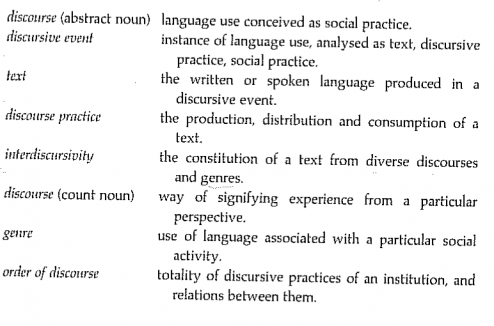 Critical Discourse Analysis is a study of LANGUAGE, IDEOLOGY, POWER and SOCIAL CHANGE. ‘Discourse analysis is not a “level” of analysis as, say, phonology or lexico-grammar, but an exploration of how “texts” at all levels work within sociocultural practices,’ says Candlin in the Preface to Fairclough. If you didn’t already gauge from the title then take this as your warning: this entry contains high levels of academic language. It is also disjointed and includes a lot of quotes (because I’m lazy).
Critical Discourse Analysis is a study of LANGUAGE, IDEOLOGY, POWER and SOCIAL CHANGE. ‘Discourse analysis is not a “level” of analysis as, say, phonology or lexico-grammar, but an exploration of how “texts” at all levels work within sociocultural practices,’ says Candlin in the Preface to Fairclough. If you didn’t already gauge from the title then take this as your warning: this entry contains high levels of academic language. It is also disjointed and includes a lot of quotes (because I’m lazy).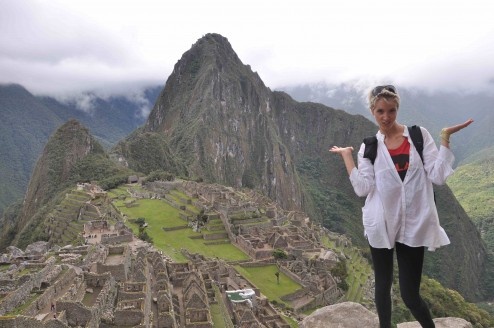 Last week I wrote about the gap between school and life-there-after, and I gather from the feedback quite a few of you agree.. Well today I’m going to write about some other gaps in our society’s distribution of knowledge that I’m sure many of you have noticed:
Last week I wrote about the gap between school and life-there-after, and I gather from the feedback quite a few of you agree.. Well today I’m going to write about some other gaps in our society’s distribution of knowledge that I’m sure many of you have noticed: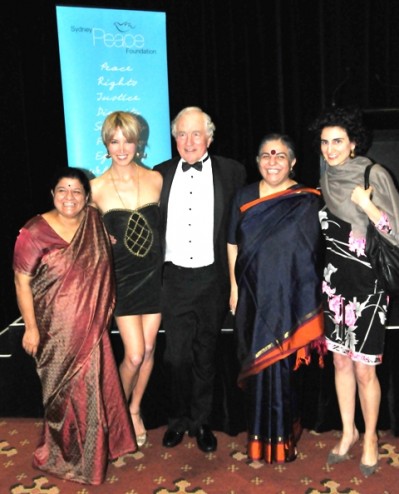 Does school prepare us for life in the real world? Is knowledge passed from academia to public spheres? Are we learning from the past, or do we continue to make the same mistakes? How well do we really understand ourselves and others in our geopolitical, social, and historical context?
Does school prepare us for life in the real world? Is knowledge passed from academia to public spheres? Are we learning from the past, or do we continue to make the same mistakes? How well do we really understand ourselves and others in our geopolitical, social, and historical context?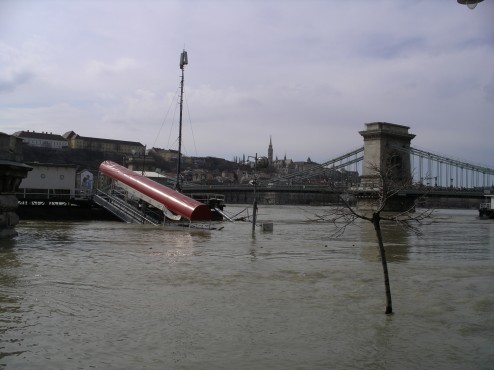 Content in living out your life: work, money, weekends, holidays, home, kids… and then something happens: a cataclysmic event changes everything.
Content in living out your life: work, money, weekends, holidays, home, kids… and then something happens: a cataclysmic event changes everything.
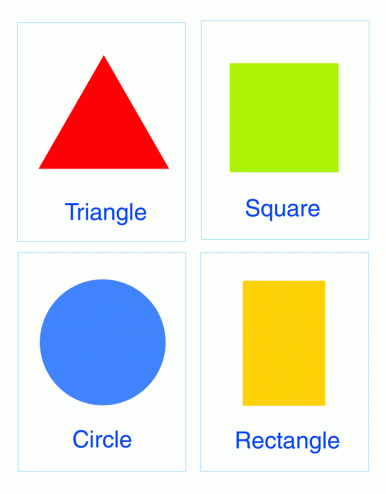

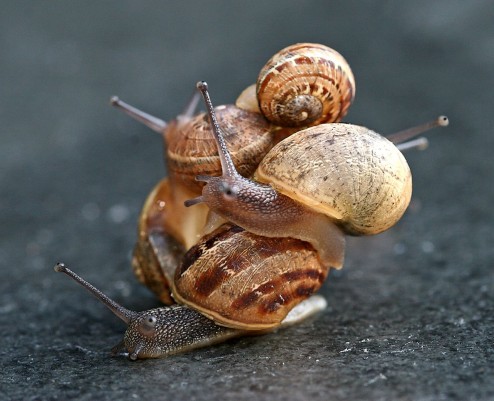
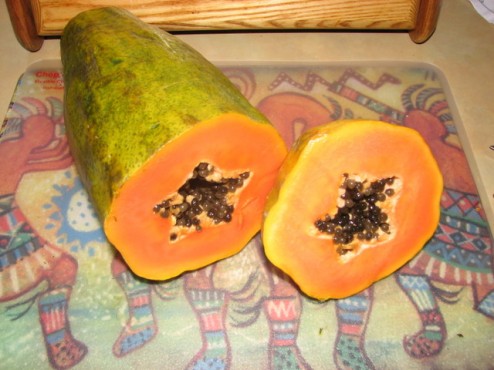


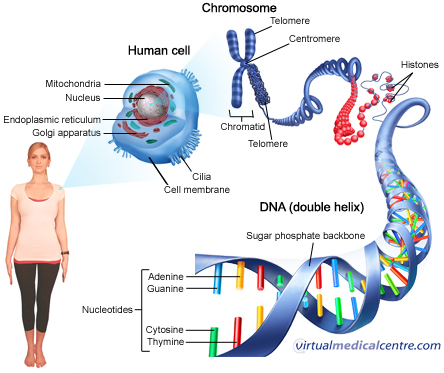





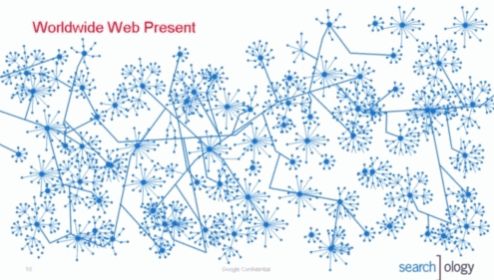




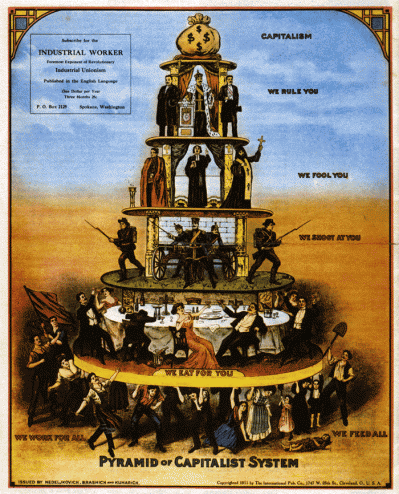
 To the Hindu caste system:
To the Hindu caste system: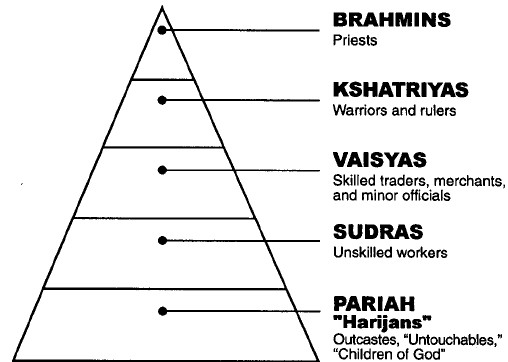
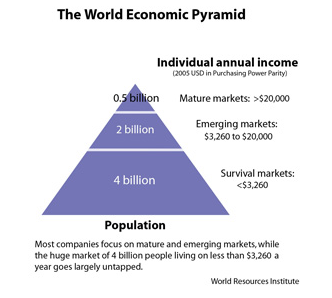
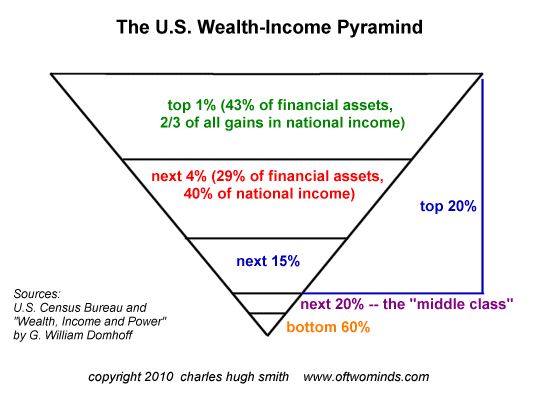
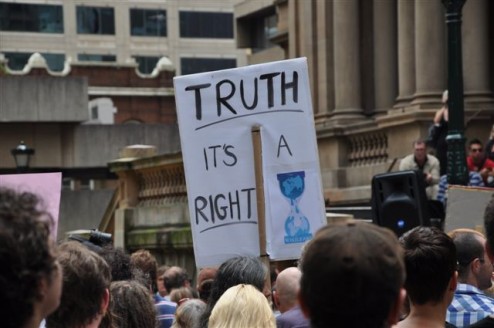 Today the Westminster Magistrates’ Court will decide the fate of Julian Assange, well at least whether or not he will get bail. And so while I haven’t even told you much about last Friday’s rally yet, I had better briefly inform any Sydney readers that there will be another rally at 530pm, again at Town Hall, today. [1]
Today the Westminster Magistrates’ Court will decide the fate of Julian Assange, well at least whether or not he will get bail. And so while I haven’t even told you much about last Friday’s rally yet, I had better briefly inform any Sydney readers that there will be another rally at 530pm, again at Town Hall, today. [1]